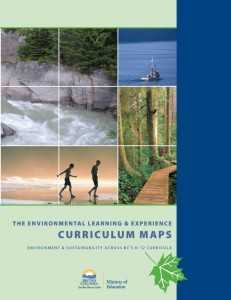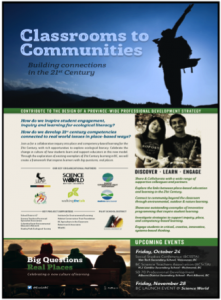Inquiry and Research Initiatives
Science World’s Evolving State of STEAM Learning in B.C.
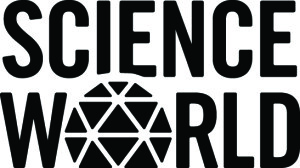 This Environmental Scan and Ecosystem Engagement Initiative investigated the current landscape of STEAM learning organizations across a range of sectors, audiences and educational contexts to produce a comprehensive snapshot of STEAM learning in B.C. The scan and provincial engagement process provided a wealth of data to inform our understanding of the current provincial STEAM learning ecosystem and the vital need to connect and scale our efforts for all learners in B.C. in the years ahead.
This Environmental Scan and Ecosystem Engagement Initiative investigated the current landscape of STEAM learning organizations across a range of sectors, audiences and educational contexts to produce a comprehensive snapshot of STEAM learning in B.C. The scan and provincial engagement process provided a wealth of data to inform our understanding of the current provincial STEAM learning ecosystem and the vital need to connect and scale our efforts for all learners in B.C. in the years ahead.
Tumbler Ridge UNESCO Global Geopark Education Strategy Initiative
 The Tumbler Ridge UNESCO Global Geopark (TRUGG), one of two Global Geoparks in North America, is located in the Peace River region of B.C. With globally significant geological, paleontological and recreational assets, the TRUGG attracts visitors from nearby and around the world to Tumbler Ridge and the Peace Region for eco-tourism, outdoor exploration, education and other pursuits. With the potential to grow significantly as a destination for education, the Tumbler Ridge UNESCO Global Geopark Education Strategy Initiative was convened to engage, consult and develop a clear and effective education strategy for the Geopark.
The Tumbler Ridge UNESCO Global Geopark (TRUGG), one of two Global Geoparks in North America, is located in the Peace River region of B.C. With globally significant geological, paleontological and recreational assets, the TRUGG attracts visitors from nearby and around the world to Tumbler Ridge and the Peace Region for eco-tourism, outdoor exploration, education and other pursuits. With the potential to grow significantly as a destination for education, the Tumbler Ridge UNESCO Global Geopark Education Strategy Initiative was convened to engage, consult and develop a clear and effective education strategy for the Geopark.
Syncollab led the engagement and consultation process, locally and provincially, that supported development of a high-level education strategy. This strategy identifies key directions, possibilities and considerations for the development of a balanced suite of educational offerings aimed at a wide range of audiences to build awareness and understanding of the TRUGG’s remarkable assets.
The Future of Science World: Community Engagement and Consultation Project
 In 2017, Science World British Columbia embarked on a provincial-scale engagement and consultation process to re-imagine its role in the community and province, the Future of Science World: Community Engagement and Consultation project. This dynamic initiative featured a broad and inclusive community engagement process across B.C., which helped to refine and inform the completion of a new Strategic Plan for Science World.
In 2017, Science World British Columbia embarked on a provincial-scale engagement and consultation process to re-imagine its role in the community and province, the Future of Science World: Community Engagement and Consultation project. This dynamic initiative featured a broad and inclusive community engagement process across B.C., which helped to refine and inform the completion of a new Strategic Plan for Science World.
Syncollab supported numerous aspects of the initiative including project design, community engagement and consultation, data analysis, reporting and consultation on the new strategic directions. We look forward to our ongoing collaboration with Science World to actualize these exciting directions.
Sustainability Learning Pathways: A Collaborative Inquiry at the University of British Columbia
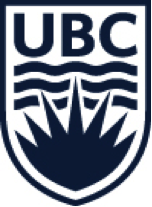 The Sustainability Learning Pathways in Teacher Education inquiry is investigating ‘sustainability learning pathways’ for undergraduate students enrolled in the Faculty of Education’s pre-service Teacher Education Program at UBC Vancouver. Supported by a generous grant from the University Sustainability Initiative (USI), this inquiry, development and piloting sequence is a timely effort that will help the USI, UBC and the UBC Faculty of Education to achieve their respective priorities with respect to sustainability.
The Sustainability Learning Pathways in Teacher Education inquiry is investigating ‘sustainability learning pathways’ for undergraduate students enrolled in the Faculty of Education’s pre-service Teacher Education Program at UBC Vancouver. Supported by a generous grant from the University Sustainability Initiative (USI), this inquiry, development and piloting sequence is a timely effort that will help the USI, UBC and the UBC Faculty of Education to achieve their respective priorities with respect to sustainability.
Syncollab is actively involved in this research initiative, leading an environmental scan of institutions across Canada and internationally, and supporting engagement, dialogue, and collaboration within the UBC Faculty of Education, participating departments, and community partners.
Ocean School Canada
 Ocean School is a novel and groundbreaking science-education program developed by Dalhousie University and the National Film Board of Canada (NFB) to connect Canadians to the ocean, spark innovation, and make science education more compelling. The program is geared towards 11-15 year old students (grades 6-9) in Nova Scotia, and will expand in scope to all Canadians and a global audience by means of an interactive website, smartphone app, and public installations.
Ocean School is a novel and groundbreaking science-education program developed by Dalhousie University and the National Film Board of Canada (NFB) to connect Canadians to the ocean, spark innovation, and make science education more compelling. The program is geared towards 11-15 year old students (grades 6-9) in Nova Scotia, and will expand in scope to all Canadians and a global audience by means of an interactive website, smartphone app, and public installations.
Syncollab is providing guidance and support for the Ocean School Pilot Project Evaluation, which will take place in early 2017. Our expertise will be focused on helping to design, implement and analyze the evaluation of the Ocean School Pilot in the classroom, from the perspective of both students and teachers.
Science World’s Supporting Schools with Science Education in the 21st Century
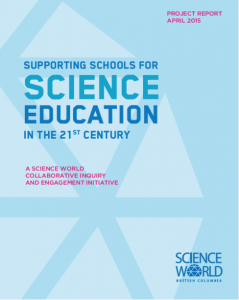 The Supporting Schools for Science Education in the 21st Century initiative facilitated a lead role for Science World in enhancing engagement and collaboration to support teaching, learning and leadership in science education for BC schools.
The Supporting Schools for Science Education in the 21st Century initiative facilitated a lead role for Science World in enhancing engagement and collaboration to support teaching, learning and leadership in science education for BC schools.
Through both internal and external engagement and collaborative activities, we have actively supported Science World to respond effectively to current changes in the BC education system by facilitating the engagement of Science World staff, teachers and our education partners in that process, and helped to build a strategy for Science World to enhance current assets and develop new resources, models of engagement and community partnerships that support schools in the 21st Century.
Sustainability Education in Metro Vancouver Compendium
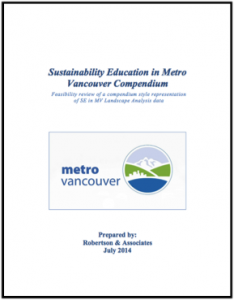 In partnership with the Metro Vancouver Education Team, Syncollab conducted the Sustainability Education in Metro Vancouver (SE in MV) Landscape Analysis to identify existing sustainability education organizations, resources and programs throughout the municipalities in our region. This ongoing inquiry is informing the development of Metro Vancouver school programs to better support our K-12 audiences and partners.
In partnership with the Metro Vancouver Education Team, Syncollab conducted the Sustainability Education in Metro Vancouver (SE in MV) Landscape Analysis to identify existing sustainability education organizations, resources and programs throughout the municipalities in our region. This ongoing inquiry is informing the development of Metro Vancouver school programs to better support our K-12 audiences and partners.
The Sustainability Education in Metro Vancouver project includes a growing inventory of existing organizations and resources, including listings for over 225 resources and programs provided by over 55 organizations across the region. These organizations and their resources are linked with Metro Vancouver core areas of service: Water, Wastewater, Solid Waste, Air Quality/Climate Change, Ecological Health/Biodiversity, and Land Use/Planning.
Curriculum and Learning Resource Development
Metro Vancouver’s K-12 Sustainability Resources
![]() Metro Vancouver School and Youth Leadership Programs provide K-12 resources to support teachers and engage students in inquiry and experiential learning about our region. Syncollab supported the design and development of these engaging, inquiry-based classroom resources to support students’ focus on essential priorities in the region, including water, solid waste, wastewater, air quality and climate change.
Metro Vancouver School and Youth Leadership Programs provide K-12 resources to support teachers and engage students in inquiry and experiential learning about our region. Syncollab supported the design and development of these engaging, inquiry-based classroom resources to support students’ focus on essential priorities in the region, including water, solid waste, wastewater, air quality and climate change.
Tumbler Ridge UNESCO Global Geopark’s Education Toolkit
 The Tumbler Ridge UNESCO Global Geopark’s Education Toolkit is a balanced suite of educational resources and materials aimed at a wide range of audiences to build awareness and understanding of the TRUGG’s remarkable assets. These integrated resources for K-12, ECE and adult audiences comprise a growing, accessible education toolkit of learning resources and tools to engage the public in learning about the Geopark and region. Syncollab provided extensive research, planning, design and development services to support creation of the Education Toolkit, now in market.
The Tumbler Ridge UNESCO Global Geopark’s Education Toolkit is a balanced suite of educational resources and materials aimed at a wide range of audiences to build awareness and understanding of the TRUGG’s remarkable assets. These integrated resources for K-12, ECE and adult audiences comprise a growing, accessible education toolkit of learning resources and tools to engage the public in learning about the Geopark and region. Syncollab provided extensive research, planning, design and development services to support creation of the Education Toolkit, now in market.
BC Hydro School Programs & Classroom Resources
 BC Hydro School Programs is a provincial leader in providing high quality, high impact resources and programs focused on energy, safety, conservation and sustainability for K-12 classrooms in BC.
BC Hydro School Programs is a provincial leader in providing high quality, high impact resources and programs focused on energy, safety, conservation and sustainability for K-12 classrooms in BC.
Working closely with Kidnetic Education, we have contributed to the redesign of several BC Hydro’s school programs, including Energy Investigations (Grade 9), Energy Connections (Grade 7) and Take Action (Grade 4-7). Realigned with the new BC curriculum, these programs and accompanying resources are now being implemented in schools around the province.
Beaty Biodiversity Museum
 The Beaty Biodiversity Museum connects the public to world-renowned scientists at UBC’s Biodiversity Research Centre. The unique combination of world-class research, paired with beautiful compelling exhibits strives to make research conducted at UBC more accessible to the public, including K-12 students from local schools.
The Beaty Biodiversity Museum connects the public to world-renowned scientists at UBC’s Biodiversity Research Centre. The unique combination of world-class research, paired with beautiful compelling exhibits strives to make research conducted at UBC more accessible to the public, including K-12 students from local schools.
Syncollab Strategies developed the Beaty Biodiversity Museum Secondary School Program focused on evolution to be facilitated at the facility. The program reflects 21st Century Learning pedagogies such as inquiry-based learning, place-based learning, and experiential education, and will be the centerpiece of Beaty’s work with Secondary students for many years to come.
Exploring Solid Waste in Metro Vancouver: From Waste Management to the Zero Waste Challenge
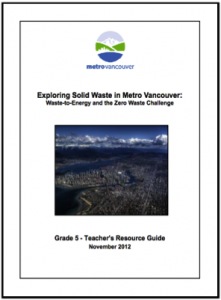 This curriculum-connected resource for the elementary level explores solid waste in Metro Vancouver with a focus on our choices with regard to solid waste management. Complementing a field experience at the Waste-to-Energy solid waste incinerator in Burnaby, these designs for learning and accompanying resources help students to explore local and current issues in solid waste reduction, to increase their understanding of the complexity inherent in resource management, and to take action through their everyday actions at home and at school for a sustainable region.
This curriculum-connected resource for the elementary level explores solid waste in Metro Vancouver with a focus on our choices with regard to solid waste management. Complementing a field experience at the Waste-to-Energy solid waste incinerator in Burnaby, these designs for learning and accompanying resources help students to explore local and current issues in solid waste reduction, to increase their understanding of the complexity inherent in resource management, and to take action through their everyday actions at home and at school for a sustainable region.
Developed in partnership with Metro Vancouver Education, this resource provides critical pre- and post-field trip lessons and activities for all school groups that visit and explore learning about solid waste management at Metro Vancouver’s Waste-to-Energy facility.
The Environmental Learning and Experience Curriculum Maps
The Environmental Learning and Experience Curriculum Maps were developed to help teachers turn theory into practice for environmental learning by connecting learning outcomes across K-12 curricula with elements of the Environmental Learning and Experience Guide. Educators in B.C. now have a stronger foundation on which to base their teaching around the environment and sustainability.
The ELE framework remains a popular curriculum resource on the Ministry’s website, while the ELE Curriculum Maps have been downloaded by thousands of teachers on the web and introduced to hundreds of BC teachers through focused professional development.
Mapping the Roots of Learning: School Gardens across the BC K-12 Curriculum
This curriculum project identifies and highlights connections between school gardens and learning outcomes across K-12 curricula in BC. The resulting curriculum maps present a set of possibilities grounded in mandated goals for student learning related to gardens, food and sustainability throughout their years in school. These connections also constitute permission to grow and use school gardens as learning environments, and offer an invitation to lead students outside, where learning is sparked by direct experience and deeply connected with the natural world.
In terms of impact, this resource is now a core part of the client’s website promoting a school gardens network across Canada. Schools across the country are becoming part of this network (as are ‘sister’ schools around the world). Follow-up projects to provide designs for learning, assessment tools and community connections to support school gardens are now in development.
Teacher Professional Development
Classrooms to Communities: Building Connections in the 21st Century
With the changes to BC curriculum, high quality professional development opportunities for teachers, especially those that explore a competency-based approach to place-based learning and inspiring ecological literacy in the 21st Century, will be in growing demand. The Classrooms to Communities Initiative, a collaborative partnership led by some of BC’s most respected organizations supporting place-based learning, is meeting this demand.
Through a series of professional development workshops across the province, participating teachers are exploring and celebrating the change in culture of how students learn, our roles as educators and strategies to support inquiry, place and competency-based learning. Syncollab is proud to be helping teachers and our community partners to share and celebrate stories of experiential, place-based strategies that are shining exemplars of 21st Century learning in BC.
Outdoor Environmental Learning in School District 44 (North Vancouver), Leadership Cohort
 The Outdoor Environmental Learning (OEL) in School District 44 Leadership Cohort was a year-long professional development initiative designed to support outdoor and nature-based teaching in the North Vancouver School District. 24 teacher leaders joined the cohort in 2016 with the intention of supporting and enhancing the district’s collective capacity as OEL mentors.
The Outdoor Environmental Learning (OEL) in School District 44 Leadership Cohort was a year-long professional development initiative designed to support outdoor and nature-based teaching in the North Vancouver School District. 24 teacher leaders joined the cohort in 2016 with the intention of supporting and enhancing the district’s collective capacity as OEL mentors.
Syncollab played a key role in helping to design and facilitate the process, as participants gained insights and developed hands-on experience in designing, leading and evaluating effective outdoor and environmental learning experiences aligned with the new BC curriculum. Participants in this leadership cohort are now working to support initiatives across the district aimed at fostering greater awareness, understanding and access to Outdoor Environmental Learning practices and resources.
Go Deeper: Transformative Practices for Community-Connected Learning
The Go Deeper: Transformative Practices for Community-Connected Learning initiative featured 2-day professional development events for teachers and other district educators from participating Metro Vancouver school districts focused on inspiring outdoor, place-based, community-connected, experiential teaching and learning. In partnership with Outward Bound Canada, Metro Vancouver and WildBC, Syncollab co-designed and co-facilitated these unique professional development opportunities, as we continue to build leadership and mentorship capacity for place-based, experiential learning in BC school districts.
Wild Schools Program in School Districts 39 and 41
 WildBC’s School Programs offer up to 3 years of placed-based education programming that provides professional development, resources, support and funding to engage students in environmental learning, outdoor field experiences and connections to conservation in their communities.
WildBC’s School Programs offer up to 3 years of placed-based education programming that provides professional development, resources, support and funding to engage students in environmental learning, outdoor field experiences and connections to conservation in their communities.
We have been pleased to convene and manage a Wild Schools Program at University Hill Elementary in Vancouver since 2013 and Marlborough Elementary in Burnaby since 2015. The program includes a professional development workshop for all school staff, facilitator support throughout the school year, connections to the community and other education partners, and funding for field trips and classroom resources generously supported by the Habitat Conservation Trust Foundation.
Environmental Learning and Experience Pro-D Templates
The ELE Pro-D Templates were developed by our team of educational professionals interested in facilitating high quality professional development experiences for teachers. The resource includes fully-developed presentation and workshop plans intended for a range of audiences and Pro-D opportunities. Each template includes suggested materials, preparation instructions, and recommended activities, as well as a complete plan for delivering the session effectively, suggested learning activities, resources and networks to support delivery of the workshops.
Building on the ELE Curriculum Guide, maps and associated learning resources, the templates have formed a basis for dozens of teacher workshops, retreats and events reaching hundreds of educators across BC.
Sustainability Education, Environment and Diversity Teacher Education Module
The SEEDs module of teacher education is part of Simon Fraser University’s Professional Development Programs. Developed in 2010-11, and building on the success of the Global Communities module, this programmatic option features a community of learners and practice with a core focus on Sustainability, Education, Environment and Diversity.
The 12-month program also includes an immersive field experience in Haida Gwaii. Approximately thirty members of the module receive certification with the BC College of Teachers each year, joining former members of the Global Communities module (where SEEDs was also a core focus), numbering in the hundreds, who are now employed as teachers and change agents in BC schools and communities.
Policy Development
The Renewed K-12 BC Science Curriculum
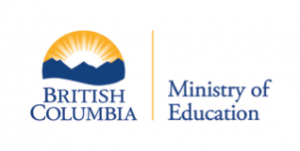 In 2015, Patrick Robertson of Syncollab was invited to join the BC Science Curriculum Revision Committee. This group was responsible for revising and finalizing the new K-9 and 10-12 Science curricula for BC schools, aligned with the BC Education Plan and the foundations of 21st Century Learning. Our curriculum committee helped to infuse numerous mandatory standards focused on place, ecology, environment, climate change and sustainability into the new Science curriculum.
In 2015, Patrick Robertson of Syncollab was invited to join the BC Science Curriculum Revision Committee. This group was responsible for revising and finalizing the new K-9 and 10-12 Science curricula for BC schools, aligned with the BC Education Plan and the foundations of 21st Century Learning. Our curriculum committee helped to infuse numerous mandatory standards focused on place, ecology, environment, climate change and sustainability into the new Science curriculum.
Over the past two years, the team at Syncollab has been actively involved in the curriculum transformation in BC, from the policy table to the classroom, both inside and outdoors. We’re now excited to be helping all of our clients and partners to understand the new curriculum, to align with its foundations and standards, and to help transform our practices in BC schools and communities.
Sustainability and Environmental Education in West Vancouver School District
This six-month collaborative process culminated in a proposal and presentation to the West Vancouver School Board recommending the articulation of sustainability as a priority in the District Strategic Plan, the establishment of a district sustainability coordinator, and support for the development of a District Sustainability Action Plan.
Key outcomes included inclusion of a strategic goal regarding the importance of sustainability and environmental education in the District Strategic Plan, the hiring of a district coordinator for sustainability and environment, and the convening of a Sustainability Action Team to support efforts across the district.
Youth Leadership
Metro Vancouver Sustainability Toolbox
![]() The Metro Vancouver Sustainability Toolbox is a unique and experience-based youth leadership program. It brings together diverse students who share a passion for influencing sustainability in their school community through inquiry, collaboration and leadership initiatives.
The Metro Vancouver Sustainability Toolbox is a unique and experience-based youth leadership program. It brings together diverse students who share a passion for influencing sustainability in their school community through inquiry, collaboration and leadership initiatives.
This action-packed four credit course features a range of fun experiential learning and leadership development opportunities designed to develop the knowledge and skills necessary to take action for sustainability.
Ripple Effect Youth Literacy in Arts Program
 Ripple Effect Arts and Literature Society’s Youth Literacy in Arts Program (YLIA) provides an invaluable opportunity for BC youth to creatively express their diverse issues, hopes and worldviews and have their creative work read and discussed in the classroom by their peers.
Ripple Effect Arts and Literature Society’s Youth Literacy in Arts Program (YLIA) provides an invaluable opportunity for BC youth to creatively express their diverse issues, hopes and worldviews and have their creative work read and discussed in the classroom by their peers.
From 2002-2009, Ripple Effect published the Wordscapes Youth Arts Journal, providing a dynamic and educational forum for youth readers, emerging writers and visual artists that engaged students, raised literacy, and fostered an active appreciation of Canada’s vibrant and diverse literary scene. Since 2010, Ripple Effect has partnered with the BC Teachers of English Language Arts PSA to produce the annual Voices Visible BC Student Writing Journal. Since 2002, over 1000 BC students have had their creative writing and artwork published and nearly 10,000 copies of the journals have been distributed to BC schools and libraries.
BC Green Games
 Science World’s BC Green Games is an annual contest designed to encourage K-12 students to document and share projects that make positive changes in their school communities relating to sustainable development, greenhouse gas reduction or environmental stewardship.
Science World’s BC Green Games is an annual contest designed to encourage K-12 students to document and share projects that make positive changes in their school communities relating to sustainable development, greenhouse gas reduction or environmental stewardship.
Submissions use creative media such as videos and photo essays to document BC students’ current eco-actions. BC Green Games provides links to great resources and established environmental education programs. We have been honoured to play a role in the initial development and steering of the project, and as judges of the contest annually.

